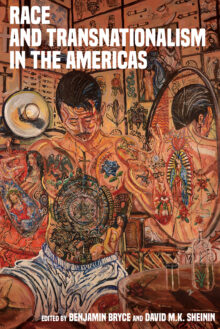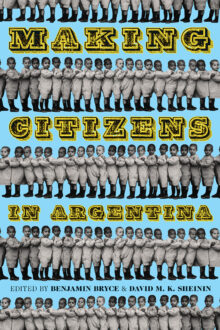
Benjamin Bryce
Benjamin Bryce is assistant professor in the department of history at the University of British Columbia.
Race and Transnationalism in the Americas
National borders and transnational forces have been central in defining the meaning of race in the Americas. Race and Transnationalism in the Americas examines the ways that race and its categorization have functioned as organizing frameworks for cultural, political, and social inclusion—and exclusion—in the Americas. Because racial categories are invariably generated through reference to the “other,” the national community has been a point of departure for understanding race as a concept. Yet this book argues that transnational forces have fundamentally shaped visions of racial difference and ideas of race and national belonging throughout the Americas, from the late nineteenth century to the present. Examining immigration exclusion, indigenous efforts toward decolonization, government efforts to colonize, sport, drugs, music, populism, and film, the authors examine the power and limits of the transnational flow of ideas, people, and capital. Spanning North America, Central America, South America, and the Caribbean, the volume seeks to engage in broad debates about race, citizenship, and national belonging in the Americas.
Making Citizens in Argentina
Making Citizens in Argentina charts the evolving meanings of citizenship in Argentina from the 1880s to the 1980s. Against the backdrop of immigration, science, race, sport, populist rule, and dictatorship, the contributors analyze the power of the Argentine state and other social actors to set the boundaries of citizenship. They also address how Argentines contested the meanings of citizenship over time, and demonstrate how citizenship came to represent a great deal more than nationality or voting rights. In Argentina, it defined a person's relationships with, and expectations of, the state. Citizenship conditioned the rights and duties of Argentines and foreign nationals living in the country. Through the language of citizenship, Argentines explained to one another who belonged and who did not. In the cultural, moral, and social requirements of citizenship, groups with power often marginalized populations whose societal status was more tenuous. Making Citizens in Argentina also demonstrates how workers, politicians, elites, indigenous peoples, and others staked their own claims to citizenship.


